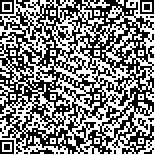本文已被:浏览 5405次 下载 0次
中文摘要: 目的 研究社区医疗团队对心身疾病认知应对水平及影响因素,并提出发展建议。方法 以2018年上海市部分社区全科医生为主体的社区医疗团队作为研究对象,分为未培训与培训后两类,通过自行设计的心身疾病认知应对调查问卷分析培训效果与各模块得分情况;采用直线回归模型对影响因素进行分析。结果 本研究共纳入375名未培训和71名培训后的社区医疗团队成员。培训后对象总分(75.52±13.51)分高于未培训对象(71.23±15.31)分,差异存在统计学意义(P<0.05);对未培训的333名全科团队成员,按全科医师、公卫医师、护士分类进行得分比较,在总分与基本概念、临床认知、临床应对模块中的得分存在差异,公卫医师得分最高,全科医师其次,护士最低,差异有统计学意义(P<0.05);单因素回归分析提示,执业范围和培训是影响总分的因素(执业范围P<0.01,培训P =0.03)。结论 培训是提高社区医疗团队的心身疾病认知应对水平的有效手段,全科团队中全科医师对心身疾病的认知应对低于公卫医师,建议通过加强培训、中西结合、拓宽视野以及政策引导提升全科医师心身疾病诊疗水平。
Abstract:OBJECTIVE To study the level and influencing factors of community healthcare team’s cognitive and coping ability to psychosomatic diseases, and to give development suggestions. METHODS Taking the community healthcare team in Shanghai in 2018, which was mainly composed of general practitioners, as the research object, it was divided into untrained group and post-trained group. Through self-designed questionnaire of psychosomatic disease cognitive coping, the training effect and scores of each module were analyzed, and the influencing factors were analyzed by linear regression model. RESULTS A total of 375 untrained and 71 trained community healthcare team members were included in this study. The total score of the trained subjects (75.52±13.51) was higher than the untrained subjects (71.23±15.31), and the difference was statistically significant(P<0.05). The scores of 333 untrained team members were compared according to the classification of general practitioners, public health practitioners and nurses. There were differences between the total score and the basic concepts, clinical cognition and clinical coping module. Public health physicians scored the highest, general practitioners scored the second, nurses scored the lowest, and the difference was statistically significant(P<0.05). Univariate regression analysis indicated that the scope of practice and training were the factors affecting the total score (practice scope P<0.01, training P=0.03). CONCLUSION Training was an effective means to improve the cognitive and coping ability of psychosomatic diseases in community healthcare teams. The cognitive and coping abilities of general practitioners in general practice teams were lower than public health practitioners. It was suggested that the level of diagnosis and treatment of psychosomatic diseases of general practitioners should be improved by strengthening training, combining Chinese and Western medicine, broadening vision and policy guidance.
文章编号:3201912030 中图分类号:R197 文献标志码:
基金项目:
| Author Name | Affiliation |
引用文本:
